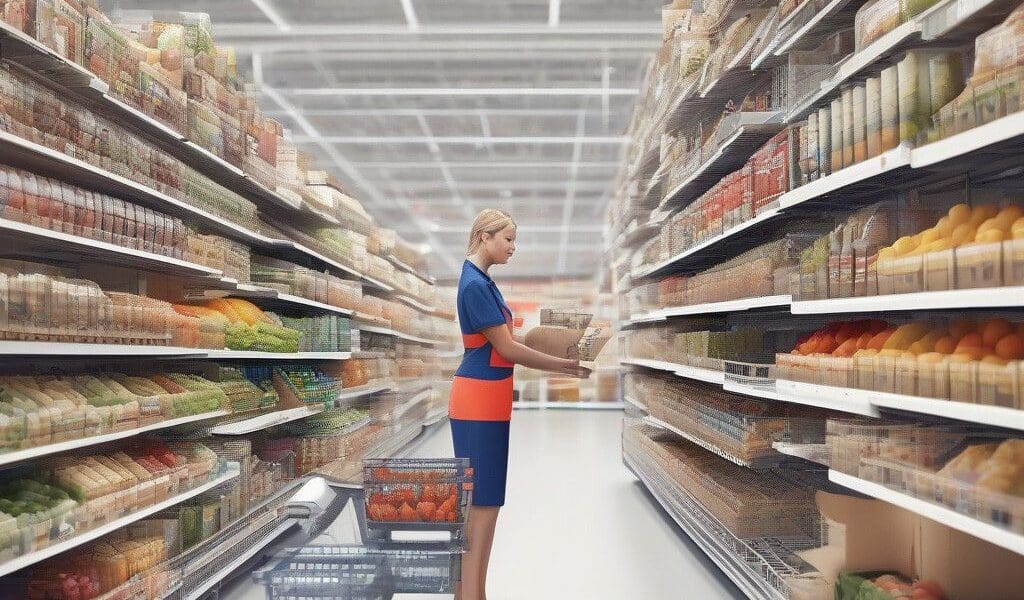In today’s rapidly changing retail landscape, adaptability is key, particularly for giants like Tesco which operate within the competitive grocery market. As consumer behavior shifts towards omnichannel shopping—where customers seamlessly transition between online and in-store experiences—companies must rethink their supply chain strategies. Tesco has taken significant steps to enhance its online shopping experience through innovative partnerships, particularly their collaboration with Dematic to integrate a Micro-Fulfillment center into their operations.
The grocery industry has seen a dramatic transformation in recent years. Increasingly, customers prefer the convenience of online shopping, while still valuing the ability to visit physical stores for immediate needs. In response, Tesco recognized the necessity to improve both its online interface and its fulfillment capabilities. This was not just about increasing online sales, but about meeting the expectations of customers who demand speed and reliability in their order deliveries.
The partnership with Dematic played a crucial role in this transformation. The Dematic Micro-Fulfillment center is specifically designed for urban environments, allowing retailers to maintain efficient operations without extensive reallocations of store space. This innovative solution fits within existing store confines, making it easier for retailers to meet high order volumes without the need for large warehouses.
One of the standout features of this Micro-Fulfillment center is its ability to improve order visibility, which can directly enhance customer satisfaction. By providing real-time updates on order status, customers are more informed and can plan better around delivery times. This transparency not only builds trust but also encourages repeat purchases, as customers feel more in control of their shopping experience.
For example, imagine a customer named Sarah, who has just returned home from work. Instead of spending time at the grocery store, she logs onto Tesco’s user-friendly website to quickly order her weekly groceries. Thanks to the Micro-Fulfillment center, her order is processed efficiently, and she receives timely updates about the status of her delivery. This kind of streamlined service can lead to greater loyalty — a crucial aspect of a competitive market.
In addition to improving the customer experience, the implementation of the Micro-Fulfillment center also helps optimize inventory management. With enhanced visibility into inventory levels and order processing, Tesco can reduce waste and ensure that popular products remain in stock. This not only prevents lost sales opportunities but also minimizes the frustrations often associated with out-of-stock items.
Moreover, energy efficiencies can be achieved through this smart fulfillment strategy. By consolidating operations into a smaller urban footprint, Tesco can reduce transportation costs, lowering both their carbon footprint and logistics expenses. In a market that is increasingly focused on sustainability, these efforts can resonate with eco-conscious consumers and enhance Tesco’s brand image.
Understanding the broader implications of such modernization in the grocery sector illustrates a pathway that many retailers might consider. Tesco’s experience serves as a noteworthy case study for others looking to refine their last-mile delivery strategies. The incorporation of advanced fulfillment centers is likely to emerge as a trend that aligns operational efficiency with rising consumer demands.
As we assess the influence of contemporary technology on retail, it is essential to highlight the role of strategic partnerships. Tesco and Dematic’s collaboration exemplifies how effective technology integration can yield substantial benefits. The Micro-Fulfillment center is not merely a technological upgrade but a comprehensive solution that enhances the entire shopping experience—from browsing products online to receiving them at home in record time.
In conclusion, the grocery market’s shift towards omnichannel experience underlines the importance of a sophisticated supply chain strategy. Those companies that are willing to adapt and innovate, much like Tesco has done with Dematic’s solutions, stand to create a competitive edge in the growing world of e-commerce. It is a lesson that all retailers can learn from, as consumer preferences continue to evolve and the need for efficiency and convenience becomes ever more pressing.











